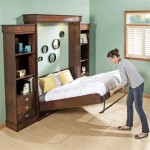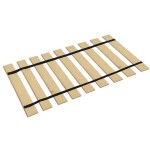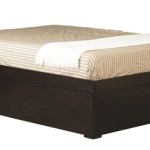Is It Safe To Use Galvanized Metal For Raised Garden Beds?
Raised garden beds offer several advantages for avid gardeners, including improved drainage, ease of access, and extended growing seasons. When selecting materials for raised garden beds, galvanized metal is a popular choice due to its durability and affordability. However, concerns have been raised about the safety of using galvanized metal in contact with edible plants.
To fully understand the safety of galvanized metal for raised garden beds, it's essential to examine its potential risks and benefits. This article will delve into the essential aspects to consider when making an informed decision about using galvanized metal for your gardening endeavors.
1. Galvanization Process and Zinc Coating
Galvanization involves coating iron or steel with a layer of zinc to protect against rust and corrosion. The zinc coating acts as a sacrificial anode, corroding instead of the underlying metal. However, the zinc coating can leach into the soil over time, raising concerns about potential toxicity to plants and human health.
2. Zinc Toxicity in Plants and Humans
Excessive zinc levels in the soil can inhibit plant growth and reduce yields. Zinc toxicity in humans can cause gastrointestinal issues, headaches, and immune system suppression. However, the amount of zinc that leaches from galvanized metal into the soil is typically low and unlikely to cause significant health risks.
3. Soil pH and Zinc Leaching
The pH of the soil plays a crucial role in zinc leaching. In acidic soils (pH below 6.5), zinc is more soluble and can leach more readily from galvanized metal. In alkaline soils (pH above 7), zinc is less soluble and leaching is reduced.
4. Organic Matter and Zinc Absorption
The presence of organic matter in the soil can help reduce zinc leaching from galvanized metal. Organic matter binds to zinc ions, preventing them from being taken up by plants. Adding compost or manure to the soil can help mitigate potential zinc toxicity.
5. Alternative Materials for Raised Garden Beds
If concerns about zinc leaching persist, alternative materials for raised garden beds include untreated wood, cedar, redwood, or plastic. These materials have their own advantages and disadvantages, which should be carefully considered before making a decision.
Conclusion
The decision of whether to use galvanized metal for raised garden beds depends on various factors, including soil pH, organic matter content, and the availability of alternative materials. While galvanized metal can be a durable and affordable option, it's essential to be aware of the potential for zinc leaching and take appropriate measures to mitigate any risks.

Galvanized Steel Raised Garden Beds Plans Tutorial Growfully

Galvanized Raised Beds Big And Small Kits Diy Options

How To Make A Raised Garden Bed Last 25 Years With Plans Ptr

Raised Garden Bed Materials What S Good Epic Gardening

Is It Safe To Use Galvanized Metal For Raised Beds Crate And Basket

Raised Garden Beds Galvanized Metal Vs Wood Huw Richards

Are Galvanized Steel Garden Beds Safe Epic Gardening

How To Grow Vegetables In A Galvanized Raised Garden Bed Gate

Is It Safe To Use Galvanized Metal For Raised Beds Crate And Basket

Upgrade Your Garden With Metal Raised Beds Flower Patch Farmhouse







